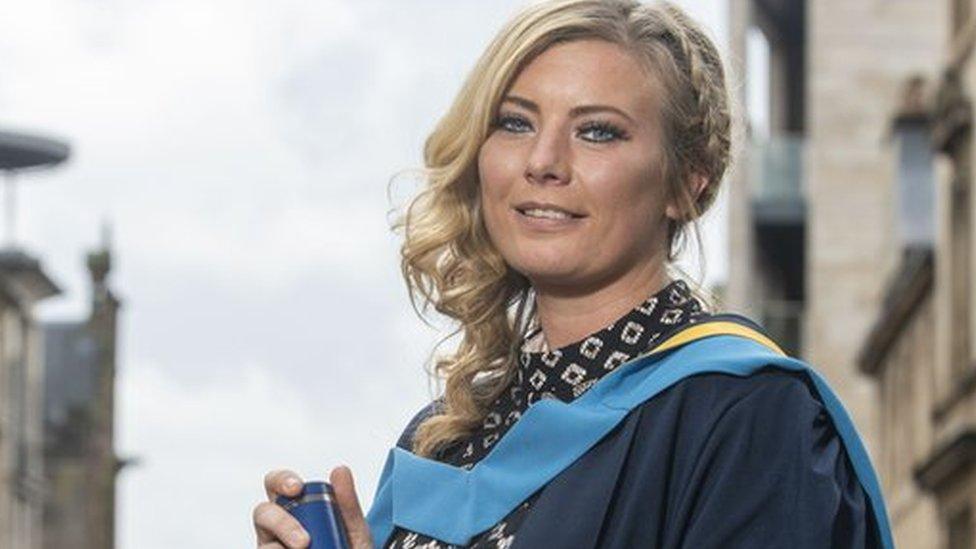'Art saved my life' - teen's joy at book of paintings
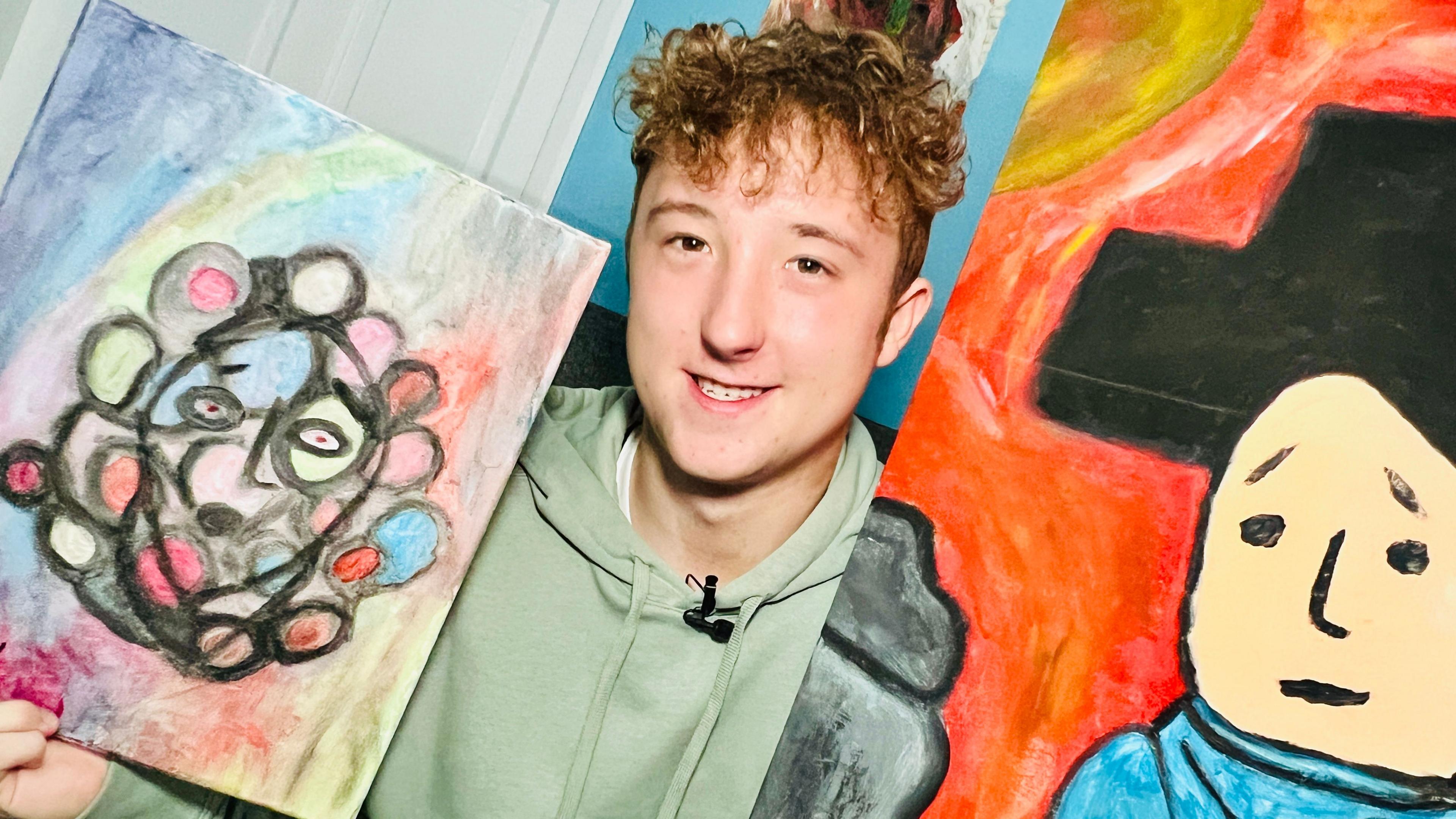
Alex with two of his recent paintings. Shape Man, on the left, shows the different feelings trying to "push inside my head"
- Published
A teenage artist born with foetal alcohol spectrum disorder (FASD) has published a book of his work to help others struggling with the condition.
Alex, from East Yorkshire, was taken into care as a baby and experienced learning difficulties, depression and other mental health issues.
The 17-year-old student said “art saved my life” after conventional therapies failed to help him.
“I felt I could talk to a piece of paper better than I could another person," he said.
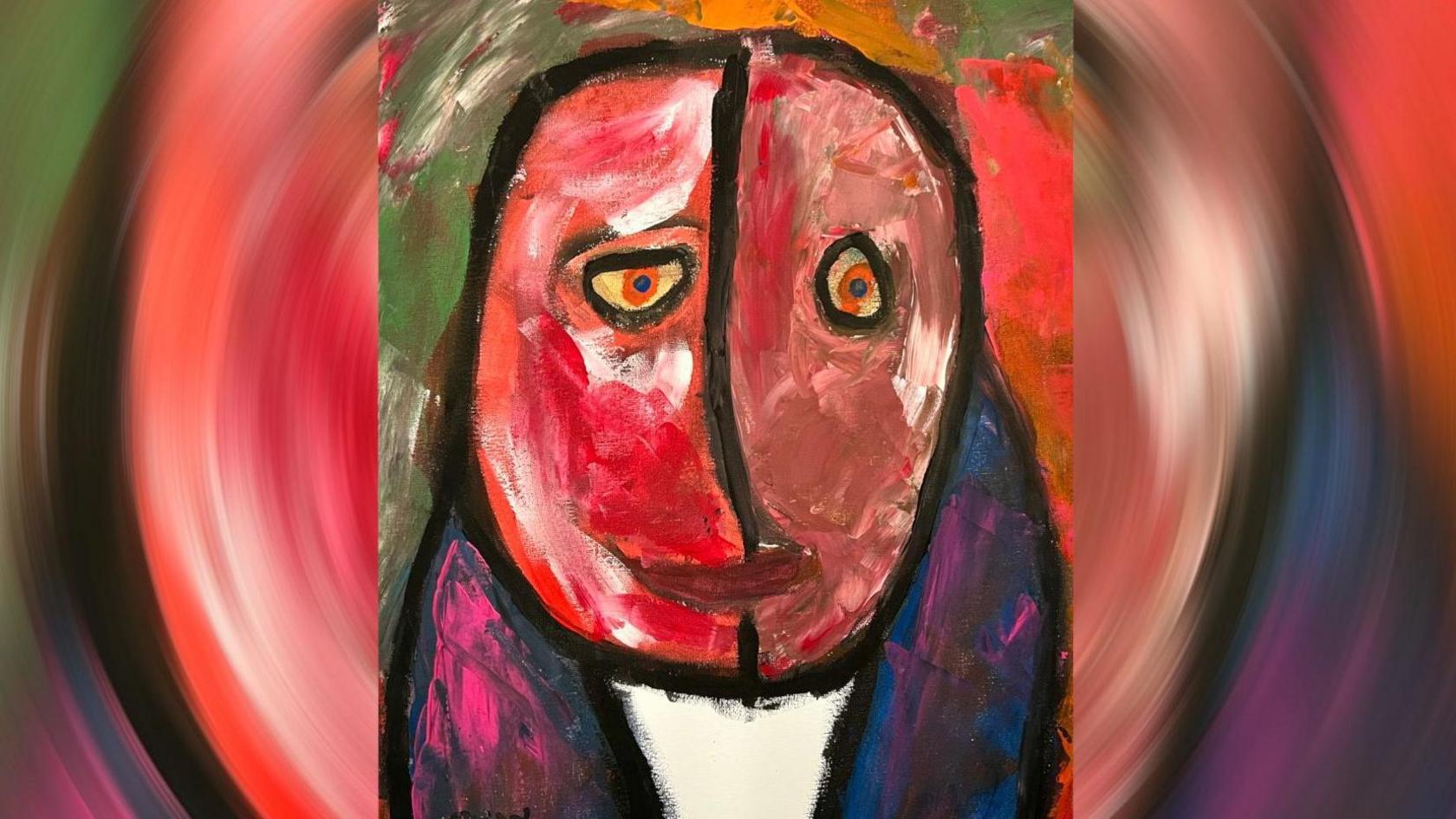
A mental health professional made a bid for the painting Split Emotions to display in their therapy room, but Alex declined saying the piece is too important to him
Alex, who has sold more than 30 pieces of art so far, started his collection after being at mental health “crisis point” last year.
He said making the book, titled Raw Emotion, helped him “be understood” and “escape from being lost in my own feelings”.
The artist said he appeared calm on the surface but confused underneath.
His artworks are characterised by hooded faces and dark colours. They represent the “boy inside my head” that has traumatised Alex through his childhood. He had never spoken about this before painting.
He hopes this book will benefit FASD sufferers by "making them feel that it is OK to be different".
His works are also on display in a Yorkshire gallery.
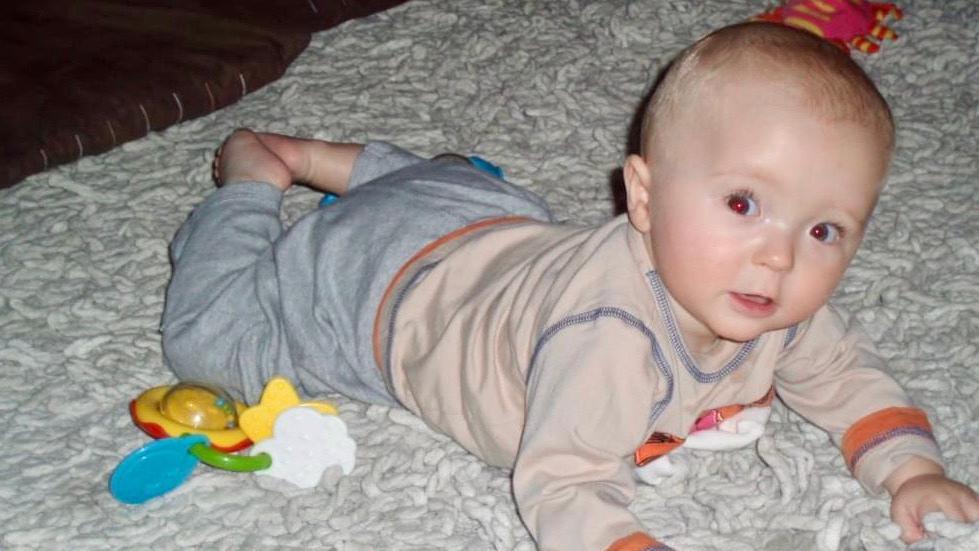
Alex was taken into care when he was a baby
Alex was adopted at the age of two by parents Penny and Wayne. They say they met “challenges and judgement” after Alex’s diagnosis.
FASD is a result of a woman drinking alcohol during pregnancy.
“People presumed I was the one who had drunk during pregnancy,” Penny said.
According to the NHS, alcohol can damage an unborn baby’s brain and body and stop them from developing normally in the womb.
The couple, who also have eight biological children, say a lack of knowledge of FASD made accessing help for Alex difficult.
“There is a lack of understanding with it being an invisible disability,” Penny explained.
They said once he received a late autism diagnosis at 15, new pathways of help were open.
She added: "He didn’t change after the diagnosis, but the offers of help did.”
The couple also says that “art is the best therapy he has ever had” having previously tried both group and individual counselling.
Alex has started giving talks at group therapy sessions for other teenagers who are struggling with their mental health in Yorkshire.
More cases expected
According to research, in some areas of the UK more than 70% of children who pass through the care system will have been exposed to alcohol in the womb.
Julie Furney, director of FASD Informed Education UK, warned there was about to be a "tsunami wave of cases" reported following the Covid-19 pandemic.
Lancet report research, external showed pregnant women drank more alcohol during this time because of "the adverse affect of lockdowns and periods of isolation on their mental health".
- Published18 August 2024
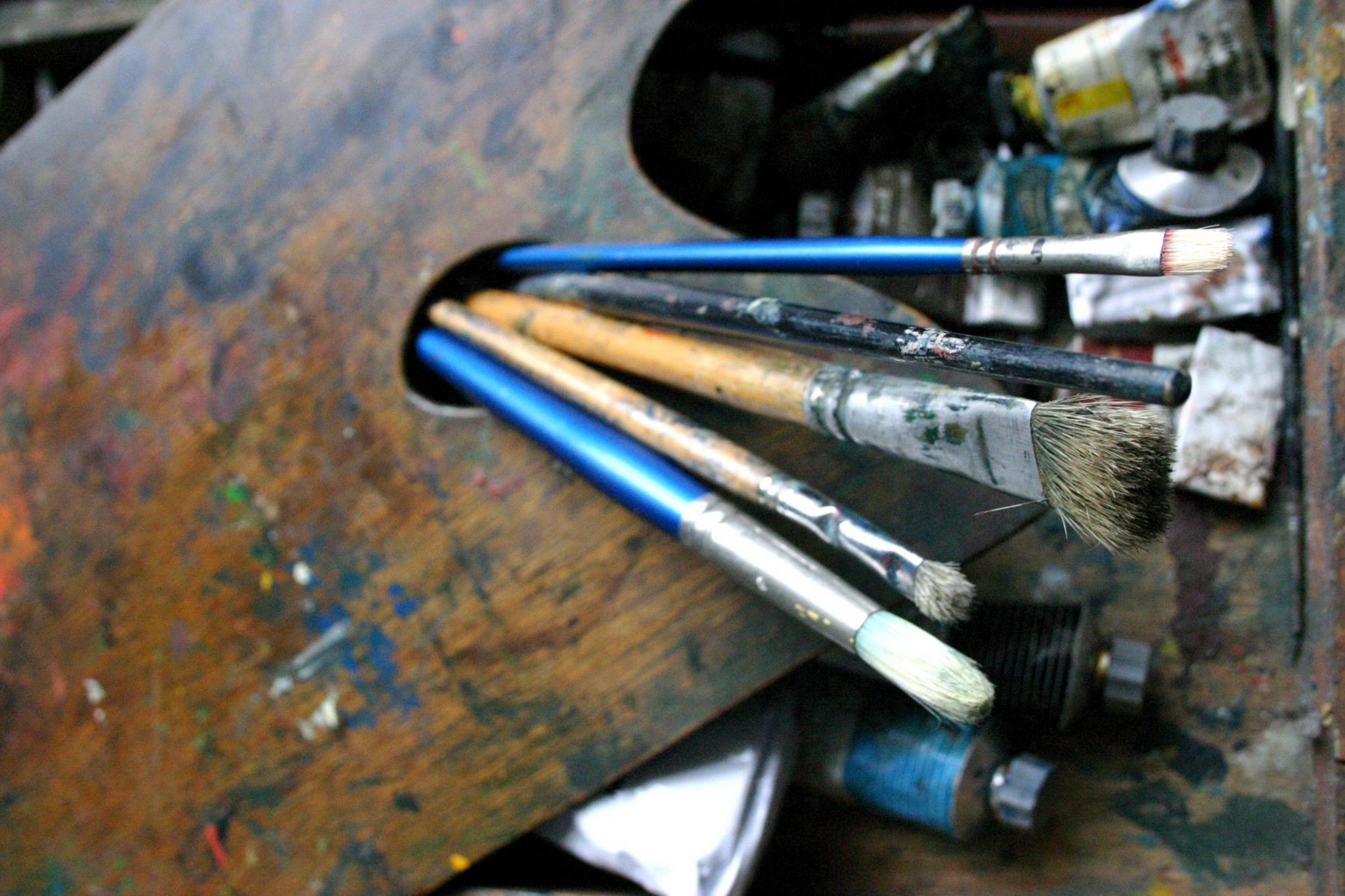
- Published29 April 2024
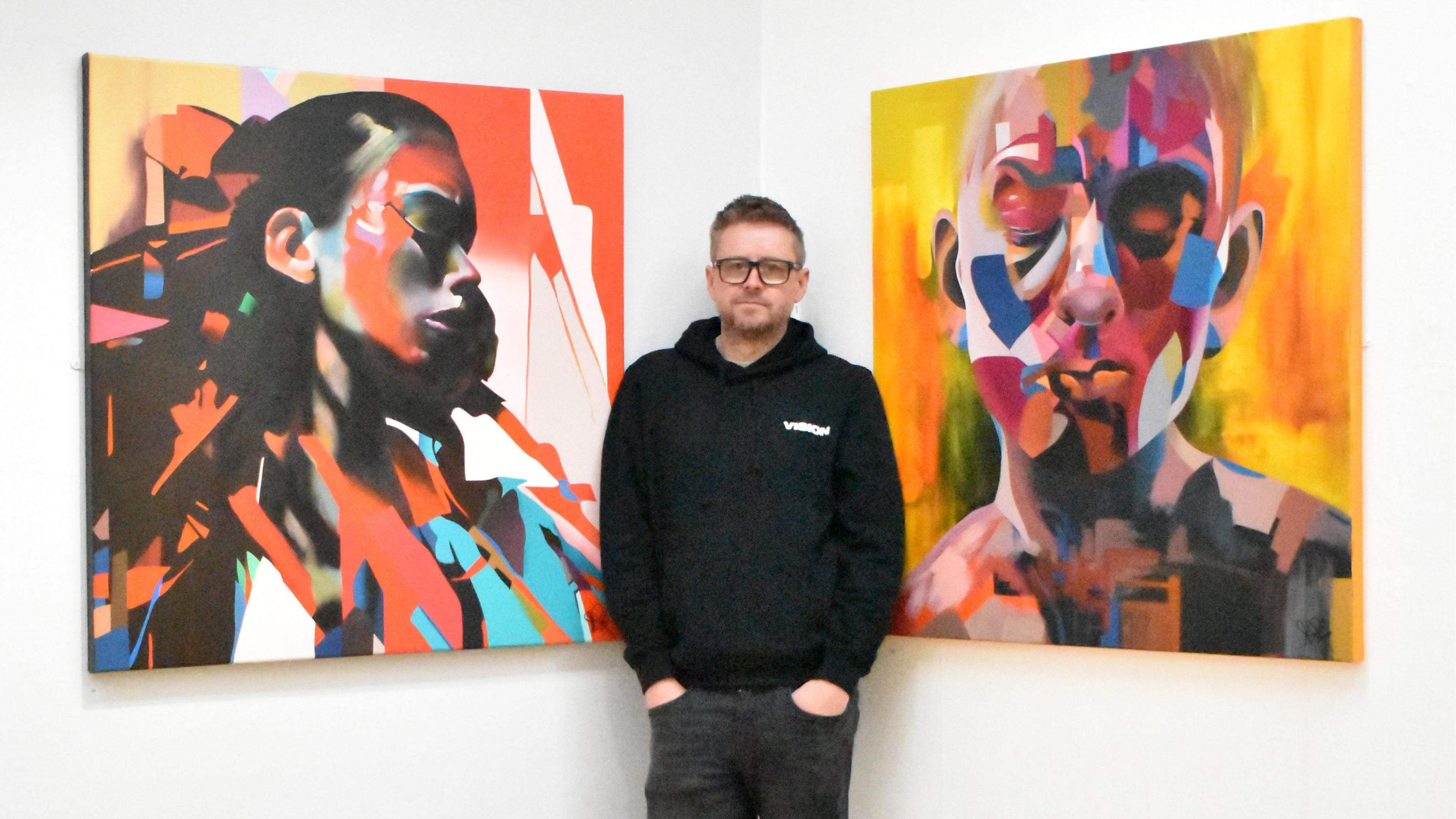
- Published10 September 2024
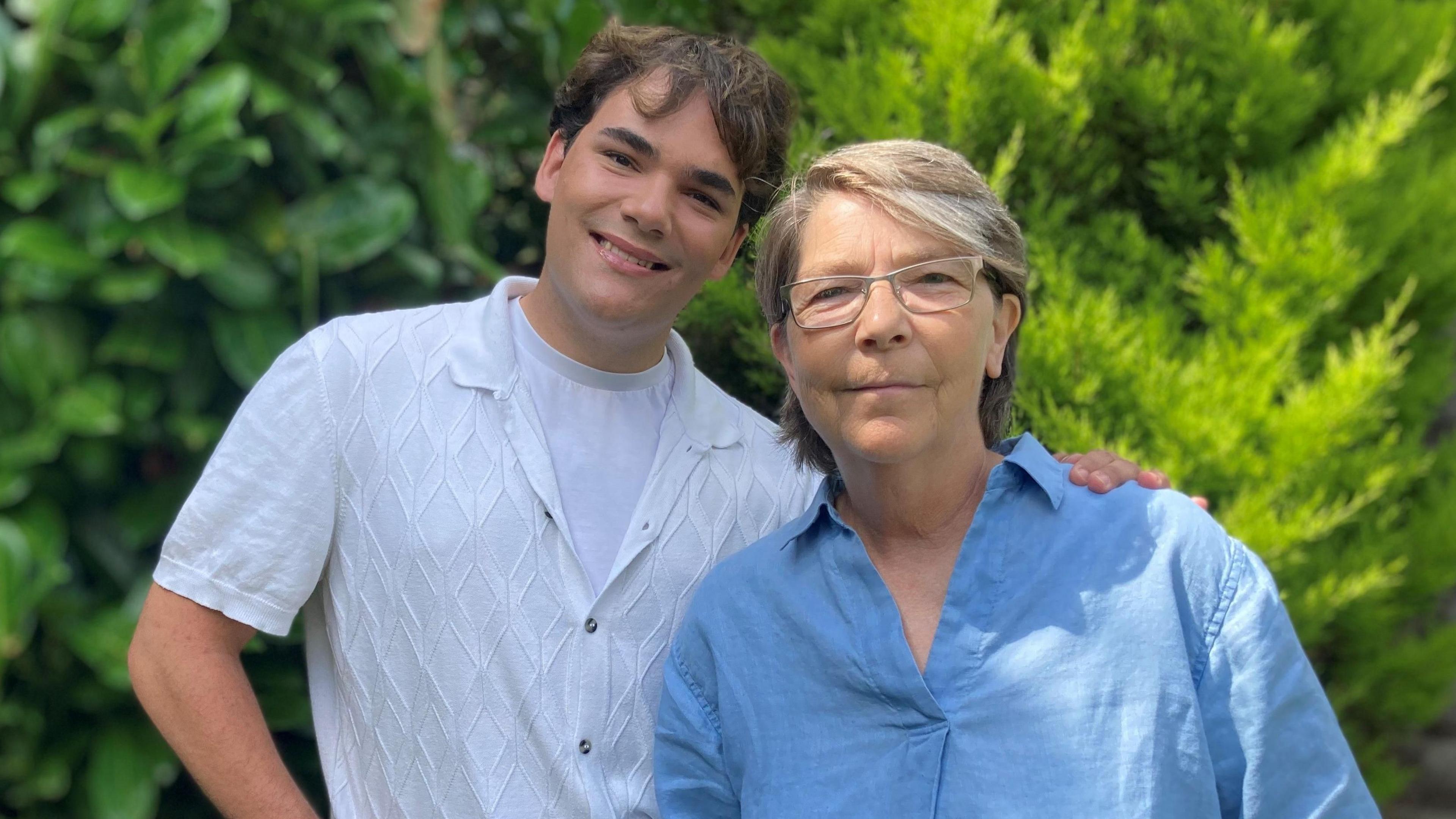
- Published30 November 2022
